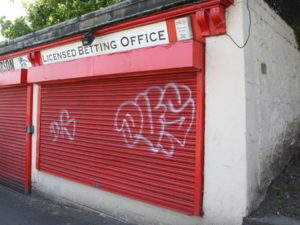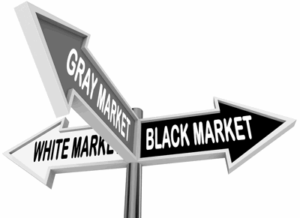Is Gambling Tax Just Another Tax On The Poor?
 Picture almost any high street in Britain these days and it paints a sorry image. Derelict buildings, closed down shops, phone repair centres, junk food outlets and budget stores. And bookies. Bookies are doing well.
Picture almost any high street in Britain these days and it paints a sorry image. Derelict buildings, closed down shops, phone repair centres, junk food outlets and budget stores. And bookies. Bookies are doing well.
Bookies are thriving. Even more so when you consider how much of their business is done online. You can see that by the fact that most gambling businesses actually ended up making a huge amount of money during the 2020-21 pandemic, where most businesses struggled. This is thanks entirely to online gambling.
Like with most vices gambling thrives on the working classes and its effects disproportionately impact those on lower or no incomes. That is not to say that people of any income class are not affected by gambling problems, but naturally the less you have to lose the more likely you are to be affected negatively if you do lose.
We have known for years that for things like alcohol and tobacco people in lower income brackets use these product more, proportionally. This means most of the tax raised comes from working class people and that has led to these premium taxes being labelled as ‘a tax on the poor’.
With that in mind, is the tax that is applied to gambling really just another tax on the poor?
Taxes On Vices
 Like all taxes on vices, be it alcohol, tobacco, sugar or junk food, these generally tend to hurt poorer communities more than they do richer ones.
Like all taxes on vices, be it alcohol, tobacco, sugar or junk food, these generally tend to hurt poorer communities more than they do richer ones.
Why should gambling be any different?
After all, the gambling industry is no friend to those on lower incomes, hence why poorer high streets are filled with bookmakers which, until recently, could have an uncapped number of fixed odds betting terminals (FOBTs) per shop, all of which would have been able to accept £200 stakes per spin.
These machines, now capped in numbers and in cost, thrived, while communities suffered.
Maybe, in that sense, a tax on this particular vice would be a good idea as there would be clear and obvious health benefits.
The thing with gambling is that, because there are no taxes on winnings, a higher level of tax would ultimately mean that only those that can afford it the least will end up paying for it.
That is because the UK government help themselves to a 15% tax levy that gambling operators must pay, 21% online.
This way, the government makes a fortune out of gambling. No wonder it is slow to act on the industry’s bad behaviour.
However, the bookies, who are not going to give up a slice of their profits all that easily, make up for it elsewhere in the form of poorer odds.
That means, in essence, that this particular “loss” is passed on to the user, meaning a raise in these taxes will likely result in worse conditions for bettors, the vast majority of which will come from the poorest communities in the UK.
In other countries, which apply the tax directly to the gambler, only those that can afford to pay it are in a position to be able to lose it, like high stakes gaming.
But, unlike arguments for junk food that claim it to be the only affordable way to feed families, gambling is, to some extent at least, a choice. An addictive choice for some, but a choice none the less.
Turning To The Black Market
 Of course, there are those that get around the issue of tax by doing their betting on the black market.
Of course, there are those that get around the issue of tax by doing their betting on the black market.
This style of tax evasion isn’t a possibility for everybody and can lead into some very murky corners of the web, but so desperate are people to avoid taxation on their pastime, that the black market is deemed a legitimate choice – although we certainly do not recommend it.
And it is a choice that in itself is thriving. In fact, over the past three years, the amount of British users taking up this option in order to satisfy their gambling needs has doubled in size.
This is according to a report undertaken by PwC which was commissioned by the Betting and Gaming Council (BGC).
The report discovered that there has been as huge rise in UK punters employing offshore websites in spite of them being virtually invisible on search engines and with the majority of the UK public who have no idea of the presence of these black market brands.
These brands are dangerous and have none of the safeguards in place that the fully licenced and regulated firms will.
The fear going forward is that a raise in taxes on legitimate gambling operators will only result in worse odds for punters and even more will be driven into the arms of the black market.



